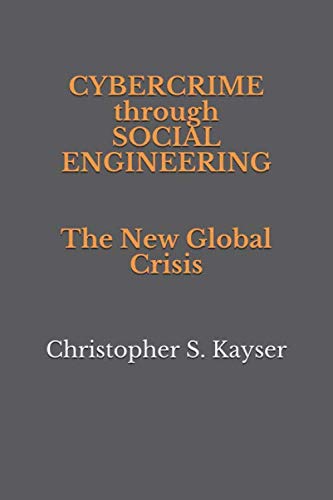For the 4 billion users of cyber technology, the author has provided a non-technical anecdotal journey through cyberspace. Citing experiences of real people, organizations, and governments, readers will learn about the massive illicit wealth transfer, ideological differences, and state-crafted cyberwarfare that continues to increase globally on an exponential basis.From his introduction to bits and bytes as a programmer, and multiple decades in the computer industry, Chris envisioned computers making our lives easier and more productive, never anticipating that technology would provide a conduit to what has become the most impactive form of crime in history – cybercrime! In his quest to learn how cybercriminals continue to stay one step ahead of efforts to reduce rates of cyber-victimization, one reason continues to dominate – how cybercriminals use social engineering to dupe their targets into becoming cybervictims.Social engineering has become the backbone of cybercrime – a means to morph technology into a weapon. Cybercriminals have become masterful at manipulating emotions that invoke us to react in specific ways not characteristic with our human nature when confronted with a malicious cyberattack. To better understand these tactics, Chris developed a new theory – RESCAT (Required Elements for a Social Engineered Cyber Attack Theory), that explores various decision processes when these emotions are triggered. RESCAT helps explain these processes, and how the ultimate outcome of becoming a cybervictims is determined by our actions. The author discusses many other factors pertaining to becoming more cyber-safe: pros and cons of passwords, password managers, cloud service providers, multi-factor authentication, cryptocurrencies, ransomware, multiple forms of phishing and spear phishing, the integrity of the apps we use, and more. He also questions whether adoption of technology during early stages in our lives could be interfering with the development of our cognitive skills and explains why encouraging children in their earliest years to grasp the world of technology may be counter-productive to their long-term development.Christopher also examines how existing efforts to provide cybercrime prevention education are not working, and how they need to be designed to address different generations, and their familiarity with technology.
List price: $25.00

